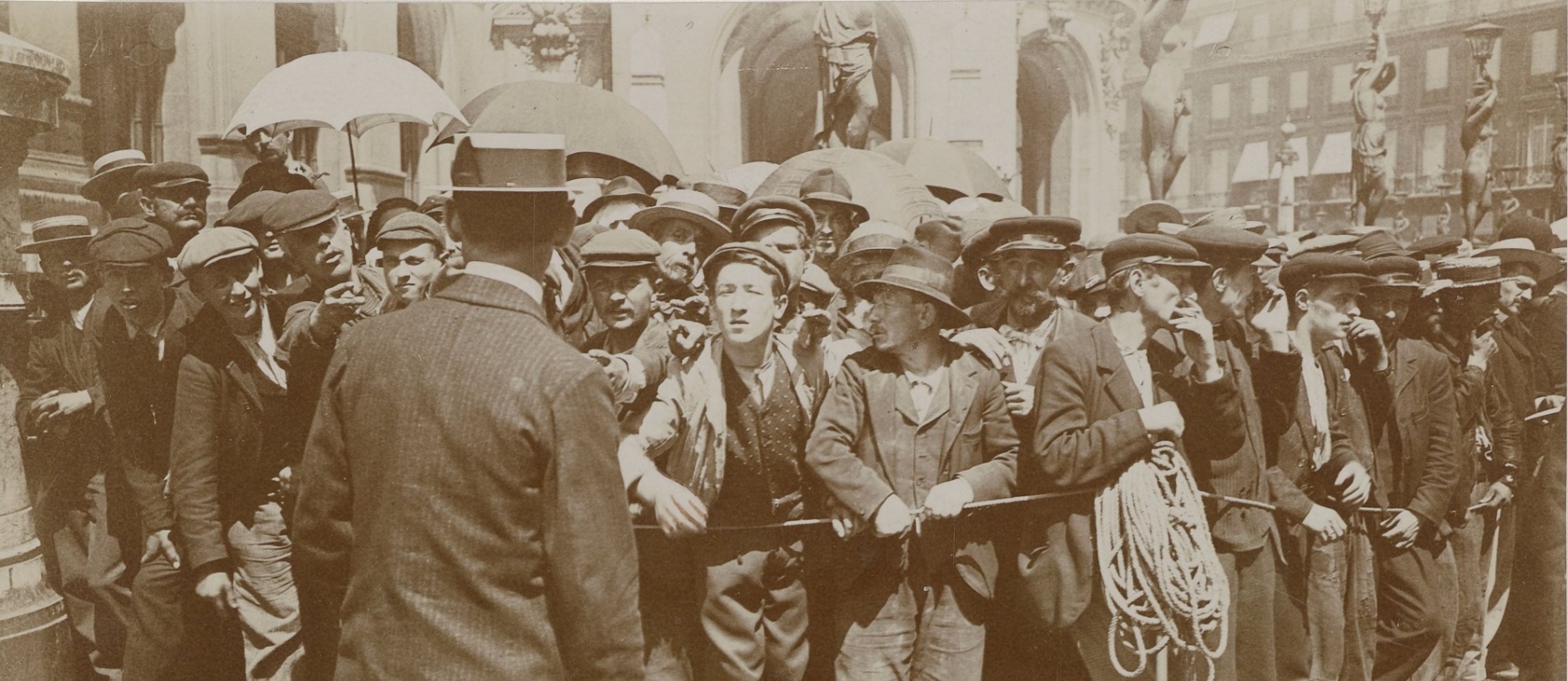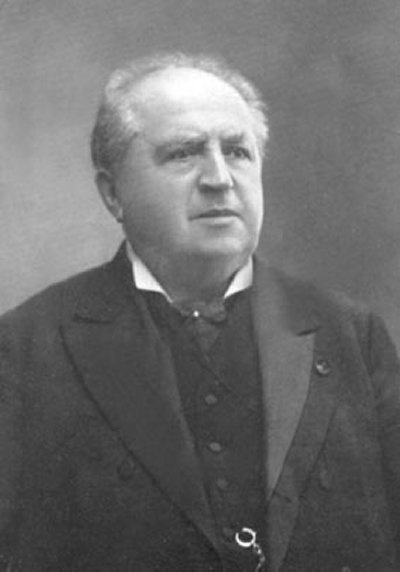The question that now demands our full attention is this: What attitude should Christians adopt in the face of the socialist movement?
And then it is beyond question that we too should be moved to profound compassion by the disorder of our society and the great distress that has resulted from it. We may not, like the priest and the Levite, pass by the exhausted traveler who lies bleeding from his wounds, but like the good Samaritan we ought to be moved by a holy compassion for him. Yes indeed, people are suffering; there are crying needs. Those needs may not yet be so great in the circles of our regular tradespeople, but they certainly exist among the proletariat behind them, and no less in certain rural areas. … God has not willed that a person should toil away and still not have enough to feed himself and his family, let alone that someone with able hands and a will to work might, just because there is no work, die of starvation or be condemned to begging.
To be sure, if we have “food and clothing” the apostle would have us be content with these (see 1 Tim 6:8 or Prov 27:26). But there is no excuse for a situation in which our heavenly Father with divine generosity causes an abundance of food to come forth from the ground and that through our fault this bounty is distributed so unequally that while one person has more than enough to eat the other goes to bed with an empty stomach—if he even has a bed. And if there are people who want to defend such abuses by invoking—God forgive them—the words of Jesus, “For the poor you always have with you” [John 12:8], then out of respect for God’s holy Word I must register a protest against such a misuse of Scripture. I must ask those who so judge first to study the same Scripture, so that they can see how conditions for the poor in Israel were almost luxurious compared to the wretchedness in which our proletariat are sunk.
But I hasten to add that a charity that knows only how to give money and not how to give one’s self, is not yet Christian love.
If you then ask me whether charitable giving should increase even more, then I answer without a moment’s hesitation, most certainly! But I hasten to add that a charity that knows only how to give money and not how to give one’s self, is not yet Christian love. You will not be blameless unless you also give of your time, energy, sympathy, and resourcefulness to help end such abuses once and for all. You will remain blameworthy until you leave nothing unused that lies hidden in the storehouse of your Christian religion for combating the cancer that is destroying the vitality of our society in such alarming ways. The material need is appalling and the oppression is great. And you fail to honor God’s Word if you should ever forget that Christ himself, just as his apostles after him and the prophets before him, invariably took the side of the suffering and the oppressed against the rich and the mighty of this world.
But even greater, and more appalling, is the spiritual need of our generation. When in the midst of our social misery I observe the demoralization that follows on the heels of material need, and hear a raucous voice that, instead of calling on the Father in heaven for deliverance, curses God, mocks his Word, insults the cross of Golgotha, and silences whatever voice still testifies in his conscience—all in order to set aflame, as in a rage, everything untamed and brutish in the human heart—then, my friends, I stare into an abyss of spiritual misery that moves me to pity almost more than the most grinding poverty.
This spiritual misery, too, cries out in reproach of us as Christians. Were not almost all those who now rage once baptized? And following their baptism, what has been spent on those thousands to make them understand something—at least something— of the true love of God that there is in Christ Jesus, instead of the caricature of the Christian religion against which they now utter their curses? And when the poison of the French Revolution crept undetected into the veins of the social body, what have we Christians done in our country to stop the poisoning of the lifeblood of society? Indeed, when at last the evil erupted and the social disease assumed epidemic proportions, what has been our contribution toward offering medicine and balm for its cure? Only now are we making our first feeble attempt by means of a social congress to face up to society’s deadly struggle.
...Christians must uphold the view that state and society each has its own sphere, or, if you will, each has its own sovereignty...
There is so much damage to make up for! Just consider the issues involved. Of primary importance is the majesty of our God. Although I shall presently discuss some concrete measures, we must first take up those general ideas that give shape and color to our entire outlook on life. We are neither plant nor animal; being human is our badge of honor; and because we are human we live first of all as conscious beings, and our sense of happiness or unhappiness in many ways is governed by our notions, ideas, and general concepts. Therefore the first article of any social program that is to bring healing must remain: “I believe in God the Father Almighty, Maker of heaven and earth.” This article is today being erased. Men will no longer hear of God in politics. Not because they do not find the poetry of religion charming, but because to say “I believe in God” is to acknowledge that there is a divine order for nature and a divine ordinance for our conscience—a higher will, to which we creatures have to submit. Today, everything has to be a free product of human creativity. The social edifice has to be erected according to man’s whim and caprice. That is why God has to go, so that men, no longer restrained by natural bonds, can invert every moral precept into its opposite and subvert every pillar of human society. Does that not point us in the direction we ought to go precisely when dealing with the social question? As Christians we are to emphasize as strongly as possible the majesty of God’s authority and the absolute validity of his ordinances. For all our condemnation of the rotting structure of our society, we are never to help erect any structure other than one that rests on the foundation laid by God.
Just as surely, in the second place, we Christians are to take sides in the controversy between state and society. If you, like the social democrats, allow the state to be absorbed by society, you deny the political authority that God has established to uphold his supremacy and his justice. Conversely, if you, in line with the state socialists, allow society to be absorbed by the state, you offer incense to the deification of the state. You will be putting the state in the place of God and destroying a divinely ordered, free society for the sake of the apotheosis of the state. Against both positions we Christians must uphold the view that state and society each has its own sphere, or, if you will, each has its own sovereignty, and that the social question cannot be properly resolved unless we respect this duality and thus honor political authority while also clearing the way for initiatives from society.
This commentary is adapted from Abraham Kuyper’s speech, “The Social Question and the Christian Religion” (1891), appearing in Makers of Modern Christian Social Thought, ed. Jordan J. Ballor (Grand Rapids: Acton Institute, 2016).




